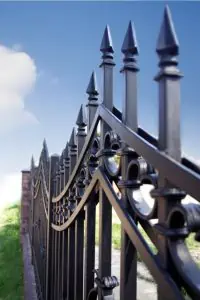How can a fencing contractor help with fence installation for noise reduction?
If you live in a busy neighborhood and want to reduce noise levels on your property, you may be considering fence installation for noise reduction. A fencing contractor can help you with the process of selecting the best materials, ensuring your fence meets local codes and zoning regulations, and installing the fence in a manner that helps to reduce noise.

Acoustic Fences Are an Effective Barrier for Noise Reduction.
If your property is located in a loud area, you may want to consider using a fence as a means of reducing sound. There are several different types of acoustic fences that can be used to achieve this goal.
These fences are typically made of solid acoustic fence panels that lack any gaps for gates or driveways. They can also be made with mass-loaded vinyl or soundproof blankets to boost their noise absorbing abilities.
They are commonly found in urban areas, but homeowners can also install them for their properties as well. Generally, they can block 10 to 30 decibels of noise from traffic, construction, or other sources of sound.
The amount of noise reduced depends on the quality of the acoustic fence, the type and location of the source of the sound, and the height of the fence. However, a 10-decibel decrease is equivalent to about the noise an older dishwasher makes.
Acoustifence is a simple and affordable first step in outdoor noise reduction for both industrial and residential use.
It can be attached to any type of existing fence to help reduce noise from sources like backhoes, compressors, and diesel engines. The material has an STC* of 28, which is an 80% reduction in sound to the human ear.
If you’re not sure whether or not acoustic fencing is the right option for your property, an expert acoustic consultant can help you determine which fence material would be best.
When choosing a fence for sound reduction, it’s important to choose one that is high enough to block out the source of the noise. The height of the fence should be based on the needs of your family and the zoning regulations in your area.
You’ll also need to make sure that the fence you choose is airtight as much as possible. This is because sound travels through the smallest of gaps, so the more airtight your fence is, the better it will be at blocking out noise.
A masonry fence is usually the best choice for noise reduction because it has a higher density than other types of fences. It can be made from any solid material, including wood or composite, but it’s particularly good at absorbing noise.
Metal fences are another good option for sound reduction because they have solid panels that reflect noise waves, which will reduce the amount of noise that gets through them. A metal fence may be more expensive and require more maintenance than other options, but it’s an effective way to reduce noise in your home.

